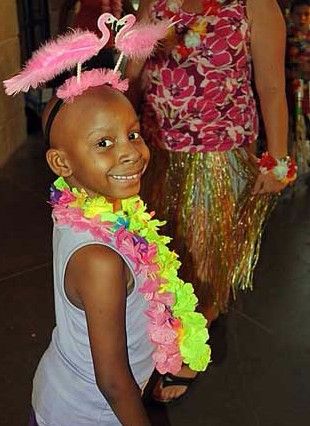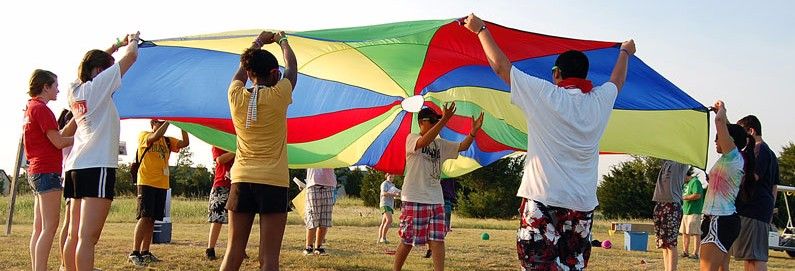"It is the one place we are accepted and feel normal, and we don't have to explain what we have gone through to anyone."

Although many children with cancer are cured of their disease, others undergo therapy for years if their cancer returns or does not respond to treatment. Their unique medical and emotional needs often exclude participation in other camps. Having cancer makes a child "different" from their peers. This may make it harder for them to relate to other children and to take on new challenges.
Camp provides the opportunity to make new friends, to gain independence and confidence through mastering a skill... whether that is climbing the wall with everyone cheering them on, or being brave enough to "boogie on the dance floor." The best thing about camp in the words of our campers, "it is the one place we are accepted and feel normal, and we don't have to explain what we have gone through to anyone."
Siblings of children with cancer may feel isolated, abandoned, or stressed by a cancer diagnosis. Oftentimes they are shuttled from friend to friend while parents are at the hospital with their child who has cancer. For siblings, camp is an opportunity to be included, to gain insight into their sibling's diagnosis from another perspective... a peer. They also have the opportunity to develop a support group, feel included, and have their unique psychosocial needs met.
In brief:
- Camp builds confidence, self-esteem, and provides a network of support...camp is a very important part of a child's overall treatment.
- Children with cancer need specialized medical care available at camp.
- Siblings of children with cancer are often isolated because of a cancer diagnosis, leaving them with the need to be included, develop a support network of their own, and be cared for by a staff that understands their unique psychosocial needs.
- Parents often do not have the funds for a camp experience after paying treatment costs.


